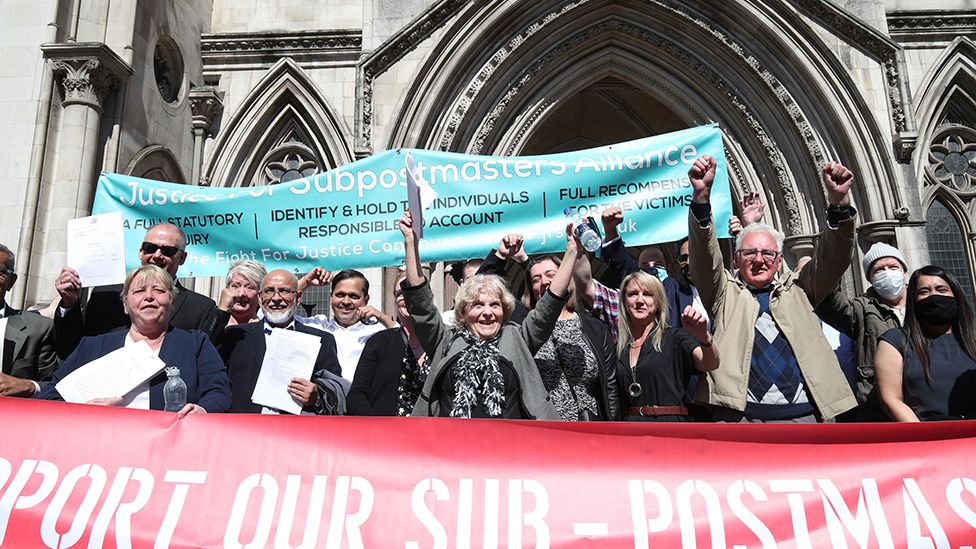Nine individuals impacted by the Post Office Horizon scandal have recounted personal experiences of desolation, bereavement, and disgrace. They symbolise over 700 sub-postmasters and sub-postmistresses who fell prey to one of the most pervasive lapses in justice in the history of the United Kingdom.
These individuals congregate on a red settee in front of a set adorned with oval red Post Office signs. The harrowing nature of their experiences provides an unsettling backdrop.
Scott Darlington declares, “Since my conviction, I haven’t entered a post office. I can’t stand even to see the signs.”
Their terrifying anecdotes are reiterated as each guest faces the camera, introduces themselves, and provides a concise summary of their dreadful experience.
T. H. Hedges reveals, “From 2009 until 2010, I managed a post office near Skegness. During that time, I was convicted and dismissed. I was not exonerated until 2021. It utterly destroyed the lives of all those I know, including myself and my family. It was the most abhorrent experience I have ever had to endure.”
Followed by Alison
“Alison Hall oversaw a West Yorkshire post office until my suspension in 2010 due to a deficit of approximately £15,000. Three years ago, the false accounting allegation against me was overturned. That’s it,” she exclaims, overcome with emotion.
Mohammed Rasul, after 27 years of service to the Post Office, was found guilty of false accounting. “I was sentenced to a suspended term of 12 months and was required to wear a tag. Since then, I have carried the humiliation. I no longer wish to carry it.”

They share the debilitating humiliation and the terrible feeling of having their reputations ruined. Formerly a dependable presence in their community, they were accused of larceny by the Post Office.
Alison couldn’t inform anyone of her suspension, turning off emotionally. “I was incapable of telling the truth to anyone.”
Suffering in Silence: Post Office Injustices
Scott, overseeing the Alderley Edge Post Office, claims to have endured “terrible stigma, embarrassment, and financial distress” ever since his 2009 suspension.
Mohammed, leading an active social life before suspension, resorted to complete seclusion. “I knew I hadn’t done it, but the stigma attached it,” he explains.
He borrowed and paid the shortfall of £12,000 from his savings, claiming he would have gone to prison otherwise.
Tom Hedges interjects, “Everyone was obligated to repay money.” Over time, he transferred approximately £60,000.
Varchas Patel asserts his father was unjustly prosecuted for deficiencies exceeding £75,000. He mentions the community displaying “wanted dead or alive” signs and the impact on his parents’ reputation.
Scott calmly describes the humiliation accumulating atop the anguish of being ensnared with no escape.
They all agree that accountability and expedited access to compensation are essential for their present desires. Scott states that punishment won’t be served unless the perpetrators are held accountable. Mohammed requests the Post Office to display a poster in each branch where an erroneously convicted sub-postmaster or sub-postmistress was located, apologizing and affirming their innocence.





